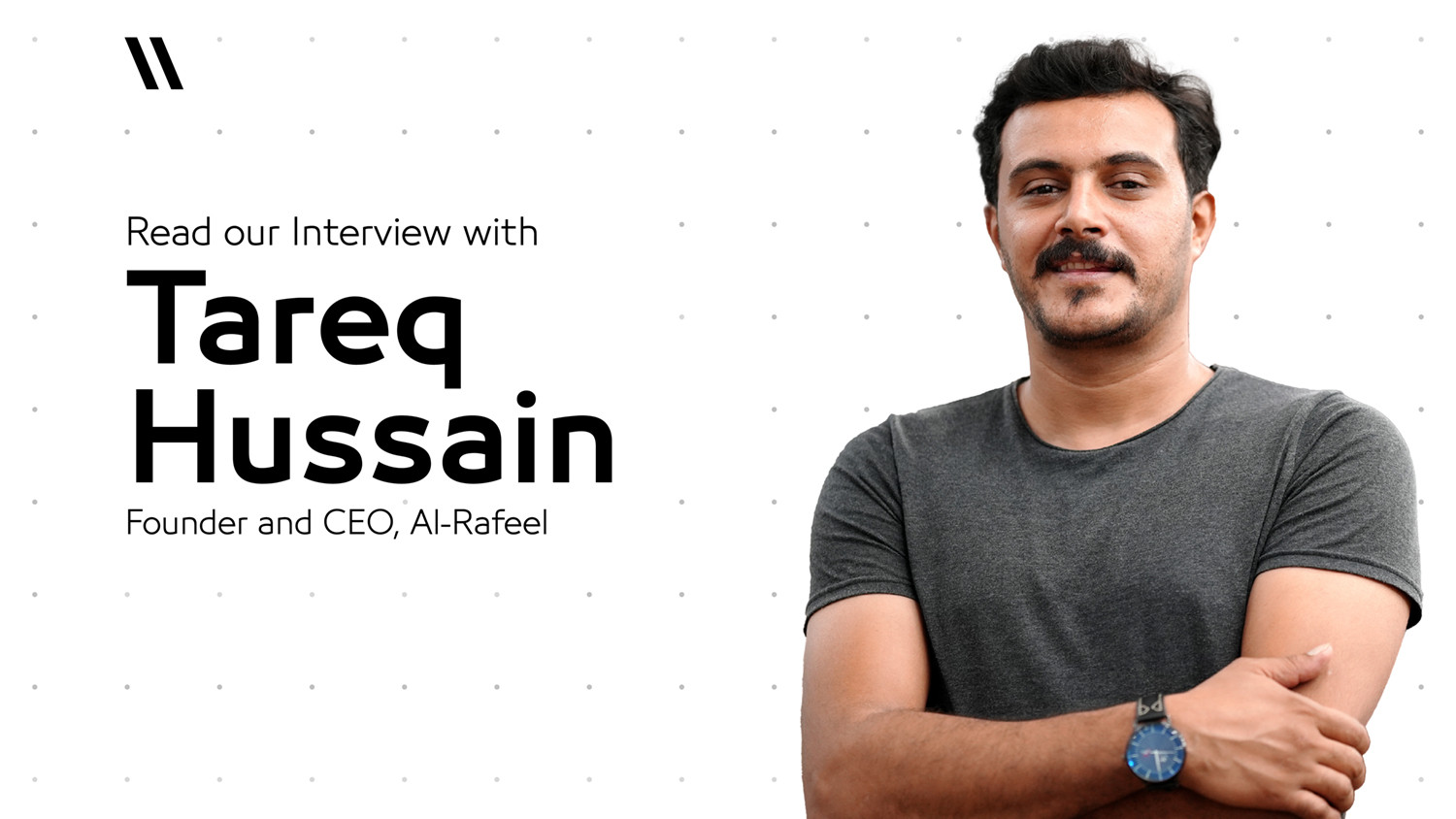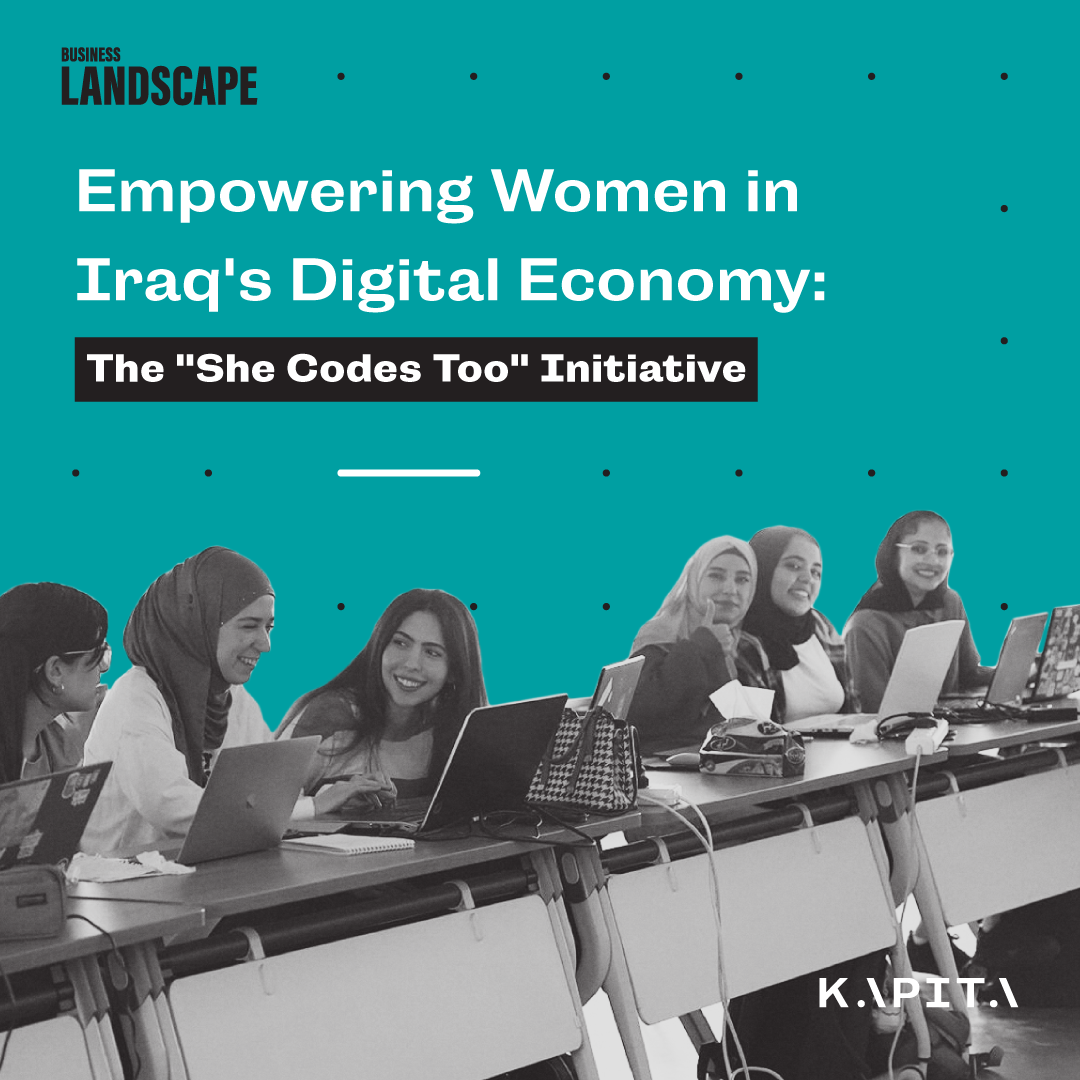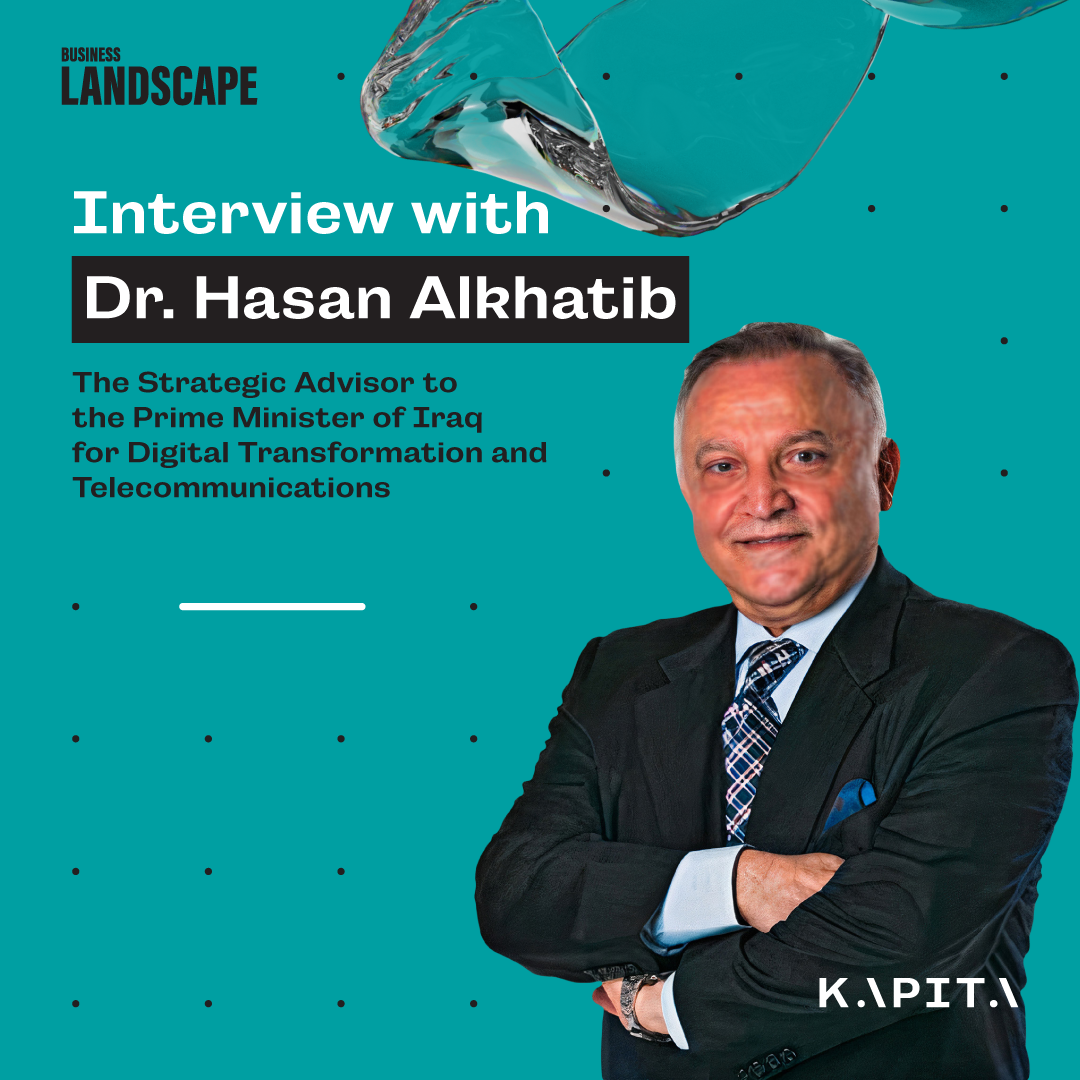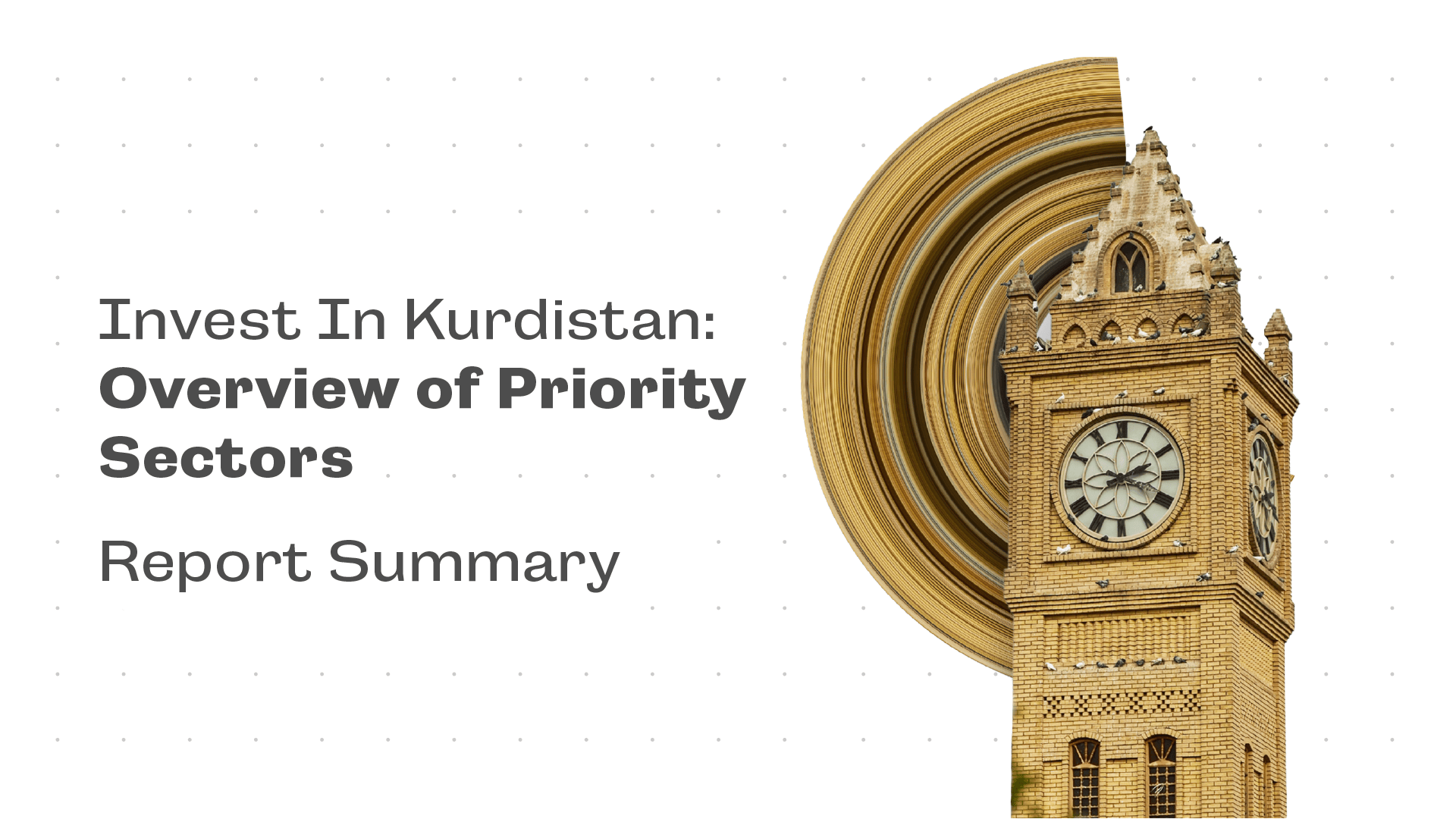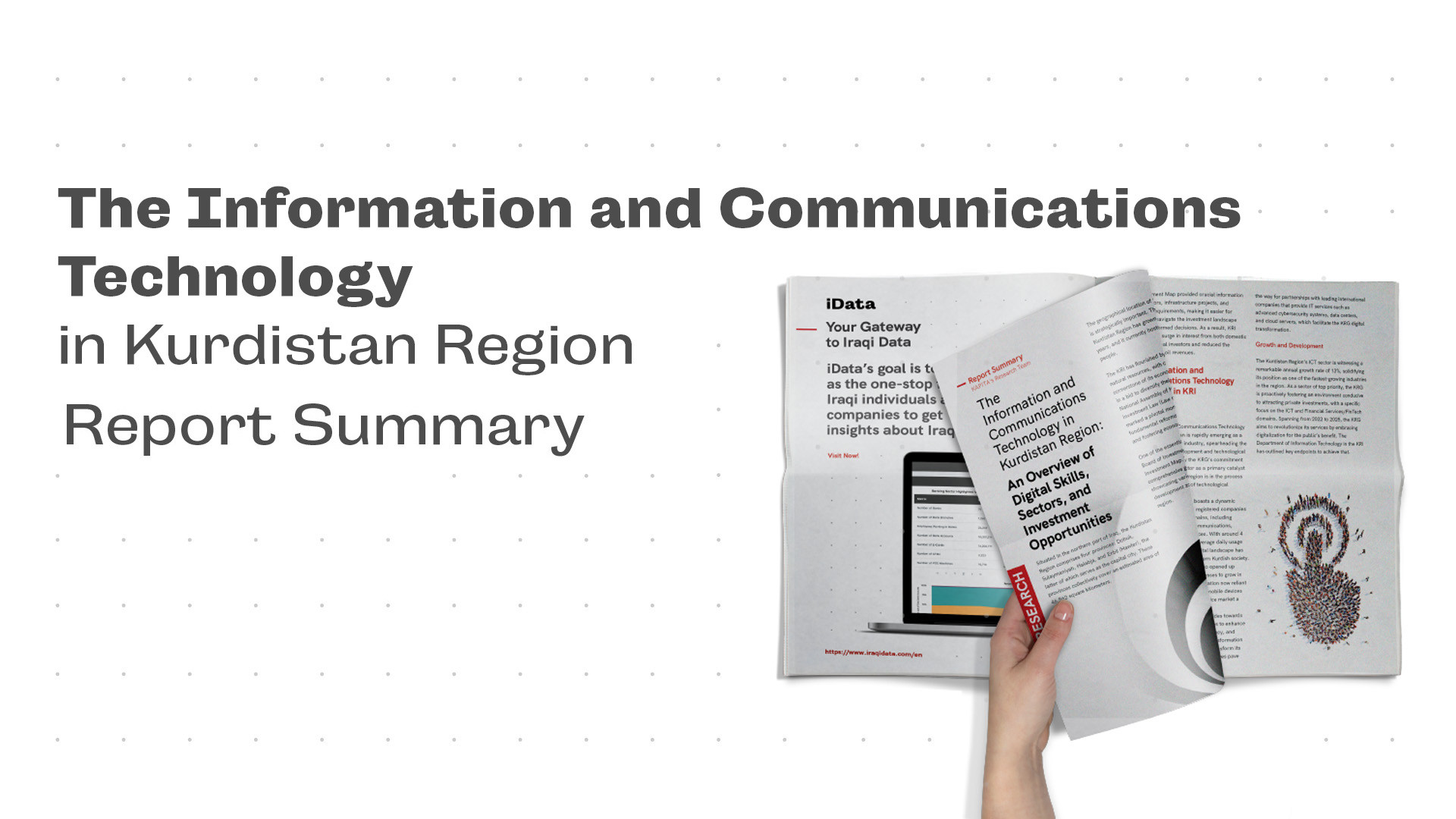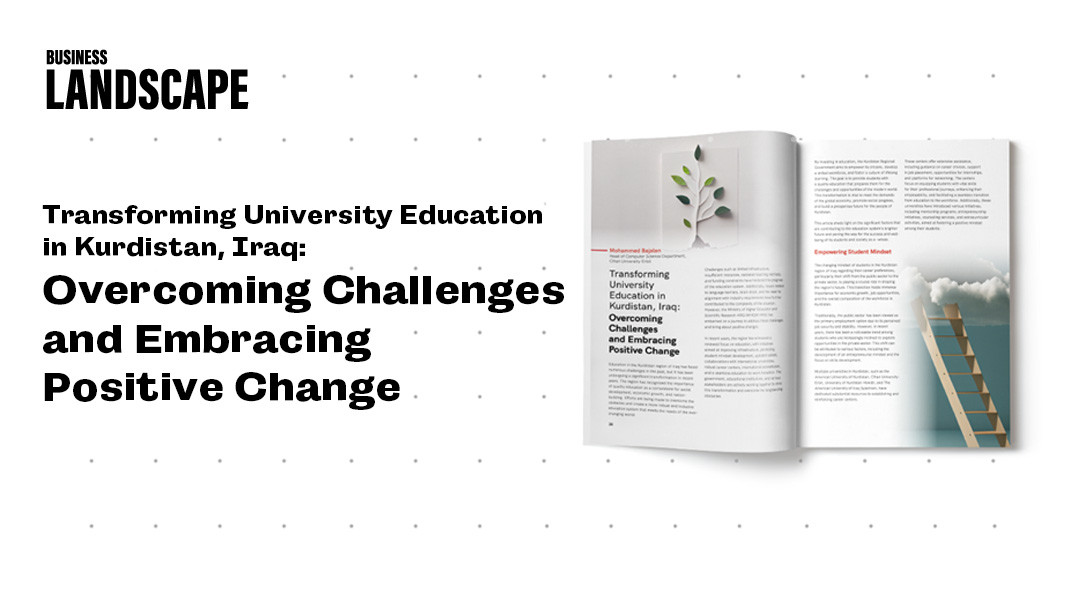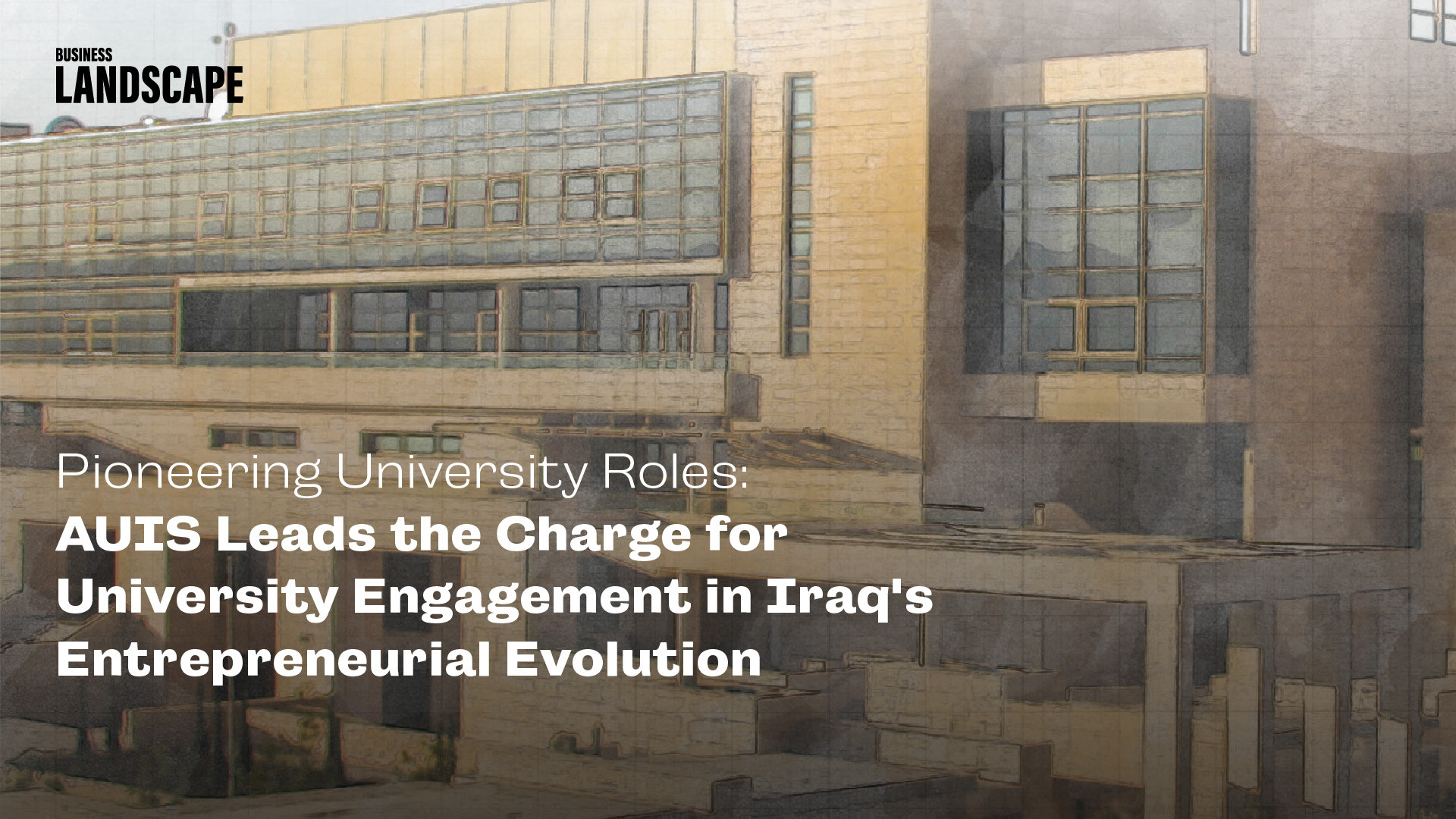Business LANDSCAPE Interview
Tareq Hussain
Founder and CEO, Al-Rafeel
Tareq Hussain is the founder and CEO of Al-Rafeel, a company that produces and packages a wide variety of ready-to-eat vegetables. Mr. Tareq’s interest in entrepreneurship led him to pursue many projects, the latest being Al-Rafeel. Mr. Tareq discusses the inception of his company, its business model, diverse sales channels, and, most importantly, social responsibility. He highlights Al-Rafeel's commitment to revive the local economy and create job opportunities for women and youth. He also addresses the challenges faced, including access to finance, lack of technology solutions, and the impact of climate change, while outlining their efforts to mitigate those challenges. Lastly, he mentions his aspiring plans for expanding their product lines and exporting Iraqi products in the future.
We would love to start with a brief introduction about yourself.
My name is Tareq Hussain, and I am 32 years old. I obtained a bachelor's degree in English Literature. I have always been interested in freelancing and entrepreneurship rather than traditional employment. I have undertaken many projects, including fish farms, with Al-Rafeel being the latest one. I am also passionate about playing the guitar and giving free music lessons to young people in underdeveloped districts in Baghdad to improve their prospects and bring positive change.
How Did Al- Rafeel start? What was the inspiration behind it?
The idea of Al-Rafeel began during the Covid pandemic when curfews were imposed, and movement was restricted. One day, we needed wholesome leafy vegetables. Yet, we had reservations about buying any, especially as the black fungus spread. We could not make any purchases and returned empty-handed. The availability of these types of products is limited to a short period of time during the day, typically until the afternoon. Greens, by nature, wither quickly and get disposed of. Al Rafeel's business idea started as a solution to this market need.
Can you tell us more about Al-Rafeel’s business model?
Al-Rafeel obtains its leafy vegetables directly from the farmers who cultivate their produce following our criteria, such as well-protected farms and produce free of pesticides. The vegetables are delivered directly to our centers. We have numerous suppliers. Starting with farms located in Baghdad, as our operations expanded and the demand increased, we extended our circle of suppliers to include Kut, Najaf, Karbala, and Erbil.
After receiving the batches from our suppliers, they go through several phases, starting with an initial sorting to dispose of damaged produce due to transportation. Then, we manually sort the leaves and eliminate impurities. The sorting process occurs in a contained cold environment to maintain the leaves’ freshness. Next comes the washing process, where greens are washed in different tanks in the following order: cold water, salted water, clean water, water with ozone treatment, and salted water again. Then, an ultraviolet ray (UV) is used to kill any remaining bacteria, and finally, the greens are washed in zero Celsius degree cold water. These steps ensure fresh, clean, bacteria-free leaves. For the drying phase, we use fans. The final stage is packaging, where we spread the leaves on stainless steel tables, package them, and keep them in cooled storages, then distribute them to markets, restaurants, and quick commerce inventories.
Do you only deal with local farmers and suppliers, or do you import some of the products?
The majority of our products are planted in local Iraqi farms except for some items, such as thyme and other greens, that require a cold environment to grow. However, we have successfully started planting thyme in Erbil in a very controlled environment. In addition, Dutch basil, oregano, and rosemary are other items we have sampled and started planting to avoid importing them. We strive to create the appropriate conditions for farming to enable us to plant and source our leafy greens locally.
You have multiple selling channels, including in-house delivery, quick commerce, and supermarket displays. Can you tell us about the added value of each?
Indeed, this variety is needed to serve the different customer segments. Our customers are divided into two types. One does not have time and favors online shopping and applications, while the other prefers shopping in person from the markets. Hence, we employ different sales channels to reach our customers.
During our market study, we noticed hygiene and storage issues in the wholesale farmers’ markets. Next to these markets are the fish wholesale markets. The same dirty and poisonous water from these fish wholesale markets is used in the farmers’ wholesale markets to keep the leafy vegetables moist and fresh, in addition to the overspreading of rats and other rodents that move freely in and out of the poorly maintained boxes. The green vegetables people buy from the local markets come from these wholesale markets.
We have changed the system of these leafy vegetable wholesale markets, and our products are available there. The value added is that people now seek our products even in these wholesale markets because Al-Rafeel aims to change social behavior rather than profit. We aim to bring real positive change across society.
Furthermore, we supply our products to many restaurants as restaurants have started dealing with us to ensure they offer their customers fresh and safe ingredients. We also receive many requests from our customers to supply their favorite restaurants.
The variety of sales channels also increased the number of workers and created more job opportunities. We started with 10 workers and have reached up to 100.
Could we know more about the recruitment and hiring process of Al-Rafeel?
Al-Rafeel focuses on creating job opportunities for marginalized groups with lower socioeconomic status, such as widowed women and orphans. About 80% of our employees are women. Al-Rafeel offers them the tools and the training to improve and develop their skills and have a sustainable income. The positions held by women at Al-Rafeel vary from managerial roles, data entry, and all sorts.
At Al-Rafeel, we also pay attention to juvenile reform. Juveniles who have been imprisoned are unable to find jobs because of their records. They usually face a lot of challenges entering the labor market. This segment of society tends to hide or lie about their background in an effort to secure job opportunities. Otherwise, they would be reluctant to go back to unlawful activities. Therefore, Al-Rafeel’s board of directors has decided to collaborate with security officials and the Department of Reform of Iraq to attract this segment of society and offer them job opportunities. It is a juvenile reform initiative aimed at youth rehabilitation and social reintegration. At Al-Rafeel, we have conducted background checks with governmental entities and security officials for about 10 candidates who were previously imprisoned. We keep them under supervision and offer them recommendations for future jobs based on their conduct. This is one of the core values of our company.
In terms of training, we rely on specialized staff members who are dedicated and committed to our business and take responsibility for the new employees’ training and onboarding.
The Iraqi consumer mostly relies on hand-picking fruits and vegetables when going to the grocery stores. How did you penetrate the market? And how have you seen the customer behavior shift towards packaged produce?
This was heavily dependent on our excellent negotiation skills. Before Al-Rafeel, we started with a sample product packed in plastic bags called Caesar. We distributed this product for free to supermarkets. As we negotiated to display our product samples with the managers, people were already purchasing our product. We applied this strategy during the busiest times in the market. As the number of markets we dealt with increased, we developed our product and established a company name. As the business grew, we began sending specialized representatives to supermarkets while the management team took on big companies and restaurants.
Many people started relying on our products, as our line of products provides people with clean, fresh, and ready-to-cook greens, saving people plenty of time and effort.
We are also targeting densely populated areas with high purchasing power, yet this market takes time and gradual progress to change its mindset to accept packaged products. The shift towards packaged products is evident. For example, In Baghdad, for every 1000 packages we supply to the market, only 40 packages get returned (about 4% return rate). There is a shift happening in the Iraqi market towards packaged vegetables, whether in Baghdad or the other governorates. Several governorates in Iraq are contacting us to establish operations in their respective regions. However, as of now, we operate in Baghdad and recently started operating in Karbala, but we plan to expand to other governorates soon.
What are the main challenges Al-Rafeel faces? And how do you overcome them?
Most of the challenges we are facing are external. In Iraq, farming, especially on a large scope, requires a lot of finance and executive governmental authority in order to be able to create vast and well-controlled farms. In addition, cooling is an essential aspect of our operations, which requires a substantial amount of energy. The recurring energy cuts affect us negatively. And buying our own generators can be very costly, reaching up to $250,000. Instead, we can invest this money into operations to maximize production and capture a larger market share. The lack of technology is another challenge. The Iraqi market suffers a shortage of technology solutions we need in our operation, and the currently available ones can come at a high cost. Therefore, we sometimes have to import them from abroad.
Furthermore, the limitations of the Iraqi passport and challenges related to travel reduce our learning and networking opportunities abroad in countries such as Italy, the Netherlands, and others that are known for their machinery and packaging quality.
In order to overcome these challenges, we utilize our own experiences, knowledge, and dedication and tend to build or fix our own machinery to reduce costs. In my office, I am currently building a machine by assembling some locally available parts instead of importing this machine, which can reduce the cost by 75% compared to the total cost of importing it.
How does climate change affect your operations? And how are you trying to mitigate this challenge?
Climate change directly affects our business since we rely on agricultural produce, and the sector of agriculture is suffering the grave impact of climate change, which is evident in the increase in temperature, the reduction of rainfall, and the rising desertification. Therefore, we strive to take action in many initiatives to mitigate the impact of climate change. For example, we are ordering and planning to include small containers made by Green Gold in our products. These containers have seeds that our customers can plant in their homes, gardens, or public spaces. This is meant as an initiative to support climate change socially and environmentally.
Moreover, we are conducting a study about mitigating the impact of climate change on Iraq by planting the Iraqi Western Desert. It is a well-thought-out plan that requires tremendous manpower, which we are planning to present to the government to obtain support.
We also have the Save the Tigris River Plan. It is another plan that we need Iraqi officials to go through. Our main condition is that we or another trusted party solely implement this plan. The reason is to ensure the plan’s proper implementation and execution.
Can you reflect on your journey in the entrepreneurial support programs? And what have you gained from this experience?
We have applied for numerous support programs, and we continued getting rejected as many perceived our project as a failure, arguing the reluctance of Iraqi society to embrace such a transformation. However, we persevered and had faith in this idea and its ability to change the social behavior of Iraqi consumers. We later enrolled in Orange Corners Baghdad, implemented by KAPITA. We gained many skills from the six months of training, especially managerial, accounting, and marketing skills. We also received a grant from Orange Corners Innovation Fund (OCIF), which we used to purchase a water recycling station. This technology helped us reduce water consumption since our business requires large quantities of water to operate.
What are Al-Rafeel’s future plans?
We are expanding our lines of production and including more varieties. We are about to start a line of production of endangered indigenous fish. There are several types of fish, such as Mangar (Biz), Binni (Bunni), Yellowfin Barbel (Gutan), and Carp (Shabot), that have gone nearly extinct in the Tigris River due to overfishing and pollution. These types are mainly available in Kurdistan Region, especially in Darbandikhan Lake. Our fish will be nicely cut, well-packaged, and ready to be cooked.
Another product we are including will be fresh milk. We will produce fresh milk without water, starch, or additives. The process is straightforward: milking, pasteurization, and storage. This milk can be used to make homemade dairy products. Moreover, we are utilizing the unwanted greens from the sorting process, around 2 to 3 tons per day, to feed our cows on the farm solely for milk production rather than meat production. Our future aspiration culminates in exporting our local Iraqi products to other countries. We are building connections to start exporting our products.
